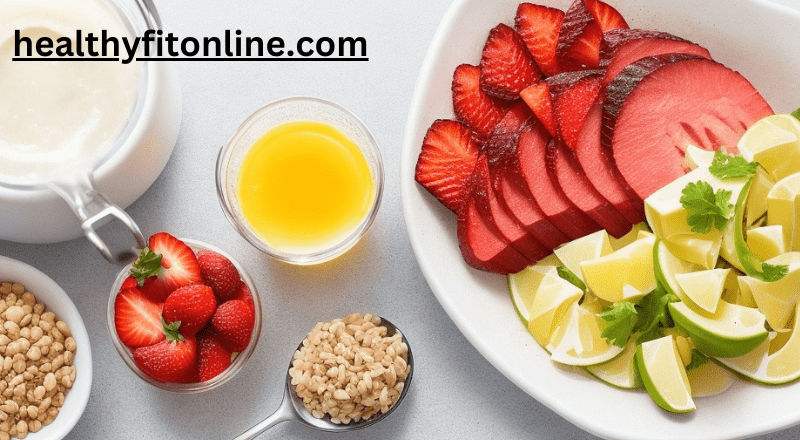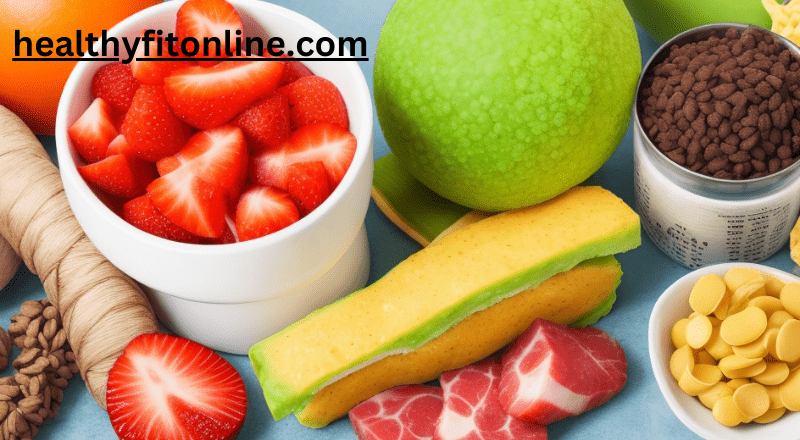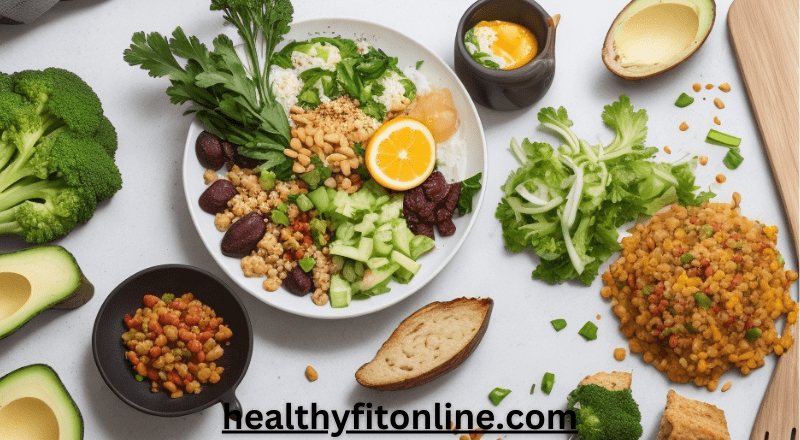Welcome to our blog, where we’ll explore the essentials of nutrition for athletes, guiding you on how to fuel your body for peak performance.
Outline of the Article
- Introduction
- The Importance of Nutrition in Sports Performance
- Macronutrients for Athletes
- Carbohydrates
- Proteins
- Fats
- Micronutrients for Athletes
- Vitamins
- Minerals
- Hydration and Its Impact on Performance
- Pre-Game Nutrition
- Post-Game Nutrition
- Snacking Strategies for Athletes
- Meal Planning for Peak Performance
- Specialized Diets for Athletes
- Paleo
- Keto
- Vegan
- Supplements for Athletes
- Recovery and Sleep
- Balancing Nutrition and Training
- The Role of a Registered Dietitian
- Conclusion
Nutrition plays a pivotal role in the life of an athlete. To achieve peak performance in any sport, one must not only train rigorously but also fuel their body with the right nutrients. This article will delve into the intricacies of nutrition for athletes, covering everything from macronutrients and micronutrients to specialized diets and recovery strategies.
- The Importance of Nutrition in Sports Performance
- Macronutrients for Athletes
- Micronutrients for Athletes
- Hydration and Its Impact on Performance
- Pre-Game Nutrition
- Post-Game Nutrition
- Snacking Strategies for Athletes
- Meal Planning for Peak Performance
- Specialized Diets for Athletes
- Supplements for Athletes
- Recovery and Sleep
- Balancing Nutrition and Training
- The Role of a Registered Dietitian
- Conclusion
- 1. Can I get all the necessary nutrients from food alone, or do I need supplements?
- 2. What’s the ideal pre-game meal for an athlete?
- 3. Are specialized diets like Paleo and Keto suitable for all athletes?
- 4. How much water should I drink during a game or workout?
- 5. How can I find a registered dietitian to help with my nutrition plan?
The Importance of Nutrition in Sports Performance
Athletes are akin to well-tuned machines, and like any machine, they require the right fuel to function optimally. Proper nutrition not only provides the energy required for training and competition but also aids in recovery and injury prevention. It can make the difference between winning and losing, or achieving a personal best or falling short.
Macronutrients for Athletes
Carbohydrates
Carbohydrates serve as the body’s main energy source, making it crucial for athletes to incorporate complex carbohydrates such as whole grains, fruits, and vegetables into their diet. This helps maintain high energy levels for workouts and competitions.
Proteins
Proteins play a critical role in muscle repair and growth, making them indispensable for athletes. Opting for lean sources of protein, such as chicken, fish, and plant-based alternatives, is vital for athletes to sustain and enhance their strength.
Fats
Incorporating healthy fats into your diet, such as the ones found in avocados, nuts, and olive oil, is essential for maintaining overall health. Additionally, these fats serve as a sustainable source of long-lasting energy to support your daily activities and well-being.
Micronutrients for Athletes
Vitamins
Vitamins like vitamin C play a pivotal role in bolstering the immune system, while vitamin D is essential for maintaining strong and healthy bones. It’s imperative for athletes to prioritize their intake of these crucial micronutrients to support their immunity and skeletal well-being.
Minerals
Minerals such as calcium, iron, and magnesium are indispensable for a wide range of vital bodily functions. Inadequate levels of these minerals can result in fatigue and a decline in performance, underscoring the importance of maintaining their proper intake for overall health and optimal athletic performance.
Hydration and Its Impact on Performance
Staying properly hydrated is key to preventing cramps and heat-related illnesses. Athletes should consume water and electrolyte-rich beverages during training and competitions.
Pre-Game Nutrition
The pre-game meal should strike a balance between nutrients and ease of digestion, ensuring it offers a sustained source of energy while preventing any discomfort.
Opting for complex carbohydrates and lean proteins is a smart choice, as they provide the necessary fuel for performance without burdening the digestive system.
Post-Game Nutrition
Post-game or post-workout, it becomes imperative to replenish the body’s energy stores and support muscle recovery. Achieving this is best accomplished by consuming a combination of carbohydrates and proteins, which aids in restoring glycogen levels and facilitating the repair and growth of muscles.
Snacking Strategies for Athletes
Sustaining energy levels during rigorous training sessions can be effectively achieved through the consumption of healthy snacks like yogurt, fruits, or nuts. These options provide a balanced source of nutrients and help athletes stay fueled.
Conversely, it’s advisable to steer clear of sugary and processed snacks, as they may lead to energy spikes and crashes, which can hinder performance.
Meal Planning for Peak Performance
Planning meals and snacks ahead of time ensures that athletes have access to the right nutrition when they need it most.
Specialized Diets for Athletes
Paleo
The Paleo diet, rich in natural foods, is popular among athletes for its potential to reduce inflammation and improve overall health.
Keto
The ketogenic diet, low in carbohydrates and high in fats, can help some athletes enhance endurance and fat utilization.
Vegan
Vegan diets can be suitable for athletes when planned carefully to ensure they get adequate protein and essential nutrients.
Supplements for Athletes
While whole foods are ideal, some athletes may benefit from supplements like protein powder or creatine. Always consult a healthcare professional before taking supplements.
Recovery and Sleep
Adequate sleep is essential for recovery. It allows the body to repair and regenerate, leading to better performance.
Balancing Nutrition and Training
Nutrition should align with training goals. Whether it’s bulking, cutting, or maintaining, the diet should support the athlete’s objectives.
The Role of a Registered Dietitian
Consulting a registered dietitian can be invaluable. They can provide personalized nutrition plans and guidance to maximize an athlete’s potential.
Conclusion
In conclusion, nutrition for athletes is a multifaceted topic that significantly influences an athlete’s performance. The right balance of macronutrients, micronutrients, and hydration can make all the difference. Athletes should be aware of their unique dietary needs and work with professionals to achieve their peak performance.
FAQs
1. Can I get all the necessary nutrients from food alone, or do I need supplements?
Supplements should be complement in a balanced diet and it not replaced. Whole foods are the best source of nutrients, but some athletes may benefit from supplements under the guidance of a healthcare professional.
2. What’s the ideal pre-game meal for an athlete?
A pre-game meal should include complex carbohydrates and lean protein, such as brown rice and chicken, to provide sustained energy without discomfort.
3. Are specialized diets like Paleo and Keto suitable for all athletes?
Specialized diets can work for some athletes, but they should be approached with caution. Consult a registered dietitian to ensure the diet aligns with your specific needs and goals.
4. How much water should I drink during a game or workout?
Hydration needs vary, but a general guideline is to drink 7-10 ounces of water every 10-20 minutes during physical activity. Adjust based on individual needs and environmental conditions.
5. How can I find a registered dietitian to help with my nutrition plan?
You can find a registered dietitian through your healthcare provider, local hospitals, or online directories. They can provide personalized guidance to enhance your athletic performance.



